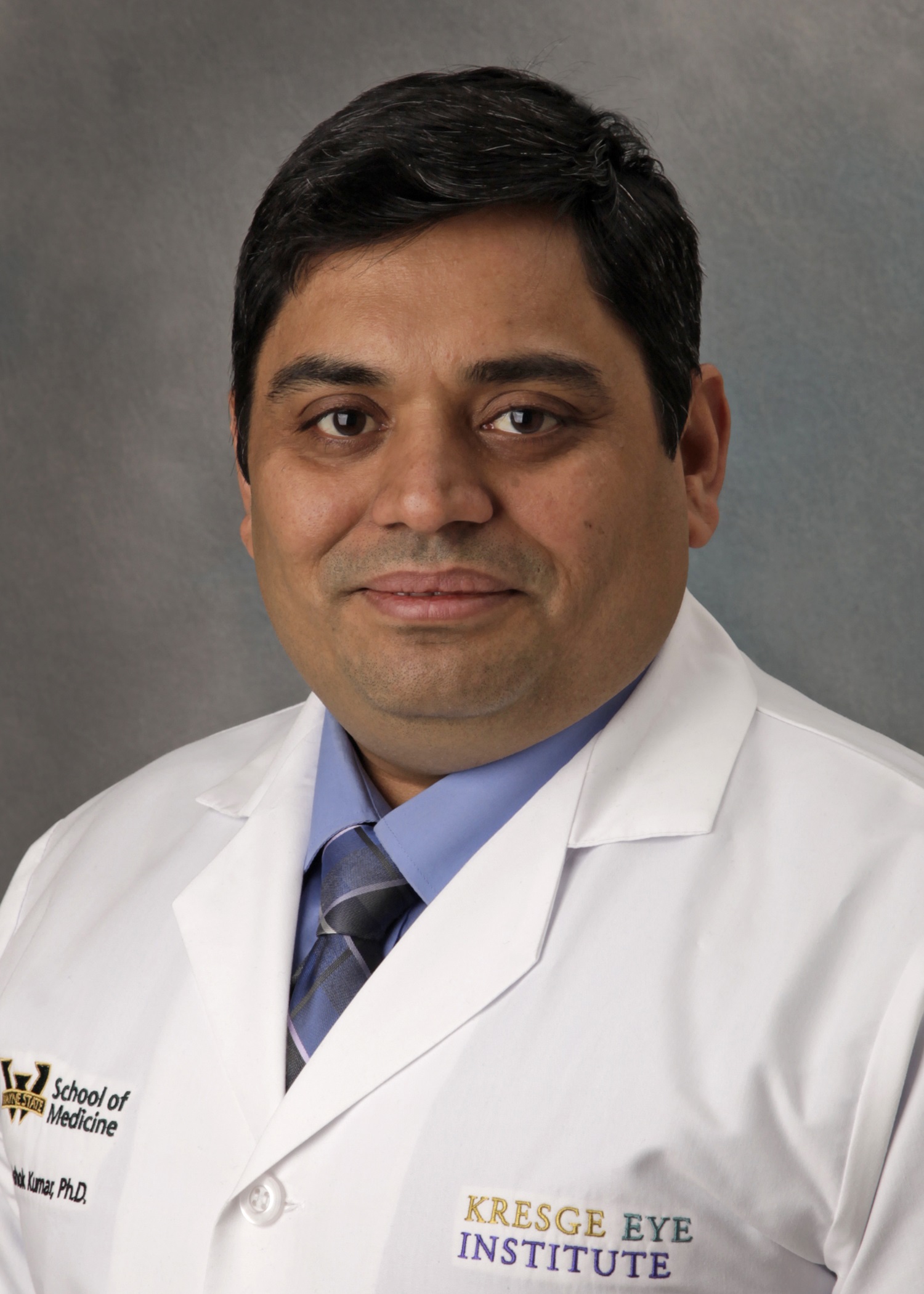Wayne State University School of Medicine Professor of Ophthalmology, Visual and Anatomical Sciences Ashok Kumar, Ph.D., has been awarded a five-year, $2.3 million grant from the National Eye Institute of the National Institutes of Health to research how ferroptosis, a type of regulated cell death, plays a crucial role in retinal damage during bacterial endophthalmitis.

Bacterial endophthalmitis is a severe intraocular infection that can occur following eye surgeries or trauma. The vision-threatening emergency can progress rapidly, leading to substantial vision impairment or permanent blindness if not diagnosed and treated effectively. Current therapies involve intravitreal injection of antibiotics, which kill the bacteria but do not stop the cell death causing irreversible damage to the retina.
The new research aims to uncover the mechanisms behind ferroptosis, a newly identified form of regulated cell death driven by iron-dependent lipid peroxidation, and its impact on retinal cells during such infections.
“Understanding how this process is regulated could open new avenues for therapeutic interventions that could prevent vision loss in patients suffering from this devastating condition,” Dr. Kumar said.
The project will take an interdisciplinary approach, integrating microbiology, immunology, cell biology and nanotechnology to develop a comprehensive understanding of the disease mechanism.
“We are particularly interested in how iron metabolism and lipid peroxidation contribute to cell death and how these pathways can be modulated to develop novel treatments,” said Zeeshan Ahmad, Ph.D., a postdoctoral fellow in Dr. Kumar’s lab.
“We plan to create nanoformulations that not only limit the availability of free iron for bacteria but also carry antibiotics. This dual-acting formulation, with the sustained release of antibiotics, will kill the bacteria and attenuate ferroptosis-mediated cell death, thus preventing retinal tissue damage,” postdoctoral fellow Henry Kolge, Ph.D., added.
The goal of the research is to translate findings into clinical therapies that can save vision and improve visual outcomes for patients with bacterial endophthalmitis, Dr. Kumar said.
Dr. Kumar acknowledged support from an unrestricted grant from Research to Prevent Blindness given to Mark Juzych, M.D., professor and chair of the Department of Ophthalmology, Visual and Anatomical Sciences, and director of the Kresge Eye Institute; and the P30 Vision Core grant led by Linda Hazlett, Ph.D., vice dean of Research and Graduate Programs and vice chair of Ophthalmology, Visual and Anatomical Sciences.
The grant number for this National Institutes of Health project is EY027381.